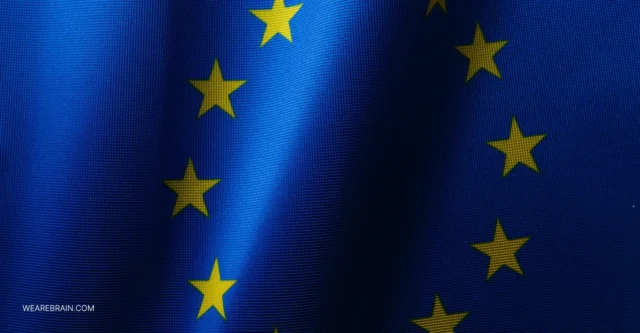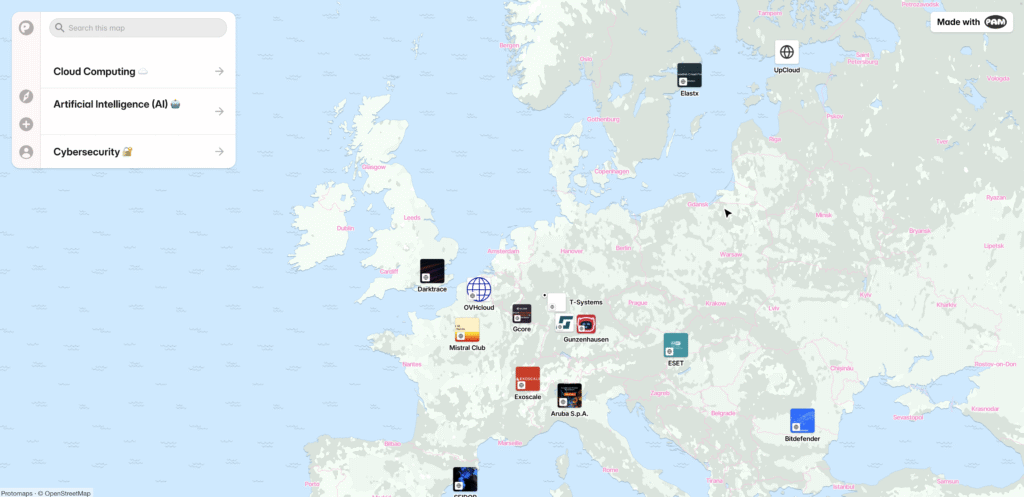
In an era where technology shapes everything from global power dynamics to personal privacy, who controls the digital infrastructure we rely on has never mattered more. Technology sovereignty — the ability for nations or regions to independently control their technological destiny — has emerged as a crucial goal for governments across the world.
For Europe, this is both a challenge and a golden opportunity. Long reliant on foreign technology providers, Europe is awakening to the risks of digital dependence — from vulnerabilities in cybersecurity to the erosion of data privacy and democratic oversight.
But with rising investment, bold regulatory moves like the GDPR, and new initiatives such as GAIA-X and the European Chips Act, the EU is signalling its intent to carve a more autonomous path forward.
Could this be the moment for European tech companies to thrive? Can sovereignty become more than a defensive posture, and instead fuel a renaissance in European innovation?
The case for technology sovereignty in Europe
Europe’s digital infrastructure has, for decades, been heavily reliant on non-European technologies — from American cloud giants to Chinese hardware providers. While globalisation has brought efficiency and innovation, it has also created vulnerabilities. The COVID-19 pandemic, supply chain crises, and rising geopolitical tensions have all exposed the fragility of this dependency.
Technology is no longer just about convenience or productivity; it’s about strategic control.
Data is power. Algorithms shape opinions. Digital platforms mediate everything from commerce to democratic debate.
In this context, Europe’s lack of digital self-determination threatens not just its economic competitiveness but also its political sovereignty and societal resilience.
From foreign surveillance revelations (like the Snowden disclosures) to fears of cyber-espionage and infrastructure sabotage, the need for Europe to control its own digital destiny has never been more urgent.
Key pillars of technology sovereignty
1. Data sovereignty
Data is often called the “new oil,” but unlike oil, its value increases the more it’s analyzed and used. Data sovereignty ensures that this critical resource is governed according to local values, laws, and democratic oversight — not foreign interests. The EU’s General Data Protection Regulation (GDPR) has set global standards here, but implementation and enforcement remain ongoing challenges.
2. Infrastructure control
From 5G networks to cloud computing platforms, Europe has often leaned on foreign providers. Initiatives like GAIA-X aim to reverse this trend, building a secure, federated data infrastructure rooted in European standards and trust.
3. Cybersecurity
Dependence on external technologies can expose European governments and companies to cyberattacks and digital espionage. Sovereignty means reducing these risks through stronger local capabilities in encryption, threat detection, and secure hardware and software.
4. Open source & local innovation
Open-source technologies offer transparency, adaptability, and collaborative innovation — all vital for sovereignty. Supporting homegrown startups and R&D is equally crucial to reduce dependency and stimulate competitive ecosystems.
5. Strategic autonomy
Ultimately, tech sovereignty is about the freedom to make independent decisions — from trade policy to defense strategies — without being beholden to foreign technologies or interests.
Current European initiatives
1. GDPR: Setting the bar for data privacy
The General Data Protection Regulation (GDPR) has positioned the EU as a global leader in digital rights. It forces companies — European or not — to respect the privacy of EU citizens, giving Europe regulatory leverage in global tech.
2. GAIA-X: Building a sovereign cloud
Launched by Germany and France, GAIA-X is a European initiative to create a federated, interoperable, and secure data infrastructure. Rather than building a monolithic cloud provider, it aims to set standards for transparency, control, and data portability.
3. European Chips Act
With semiconductor supply chains increasingly seen as national security concerns, the European Chips Act seeks to double the EU’s global semiconductor market share to 20% by 2030 — fostering local design and production capabilities.
4. EU digital identity and wallet
The EU is developing a trusted digital identity framework, allowing citizens to access services securely across borders. This initiative further exemplifies the move toward digital self-reliance.
5. Horizon Europe & innovation funds
Massive EU funding programs like Horizon Europe support research and innovation, particularly in AI, quantum computing, cybersecurity, and other sovereignty-related domains.
Challenges and tensions
Despite the momentum, Europe faces significant hurdles in achieving true tech sovereignty.
- Fragmentation: The EU’s digital market remains fragmented, with different rules, standards, and funding mechanisms across member states.
- Scale: European tech firms often struggle to compete globally due to limited access to risk capital, smaller domestic markets, and regulatory constraints.
- Talent & Brain Drain: Many of Europe’s top engineers and entrepreneurs are lured to Silicon Valley or Shenzhen, drawn by better pay and more ambitious opportunities.
- Open Markets vs. Autonomy: Europe must walk a fine line between protecting strategic sectors and remaining open to global innovation and competition.
6. Opportunities for European tech companies
Technology sovereignty isn’t just a regulatory or geopolitical issue — it’s a market opportunity.
European tech companies now find themselves in a position to lead in areas where trust, transparency, and accountability matter most. As governments and institutions seek alternatives to foreign platforms, there’s growing demand for local solutions that are secure, privacy-compliant, and aligned with European values.
Privacy-first products
With GDPR and upcoming regulations like the AI Act, European firms can brand themselves as privacy-first providers. This gives them a competitive edge in sectors like healthtech, fintech, and edtech, where data sensitivity is paramount.
Trusted cloud and infrastructure
Startups and scale-ups offering sovereign cloud services, data storage, cybersecurity, and communications platforms have a real chance to capture public sector and enterprise markets looking to reduce reliance on hyperscalers.
Regulatory alignment as differentiator
While regulation is often seen as a burden, it can also be a moat. Companies that build with European compliance in mind from day one can avoid costly retrofits and become go-to partners for businesses navigating the EU digital landscape.
Public funding and procurement
The EU is backing sovereignty with money. Programs like Horizon Europe, the Digital Europe Programme, and national digital strategies offer funding, R&D support, and government contracts. Firms that align with sovereignty goals can access these resources more easily.
Positioning against digital colonialism
As Europe seeks to avoid becoming a passive consumer of foreign tech, companies that champion ethical, democratic, and decentralized digital models are well positioned to lead the narrative — and the market.
7. What needs to happen next
To seize the full potential of technology sovereignty, coordinated effort is essential — from policymakers to founders, from investors to educators.
Policy & Investment coordination
The EU and member states must continue aligning regulations, streamlining funding access, and creating clear pathways for tech sovereignty initiatives to scale.
Support for startups and SMEs
Sovereignty won’t be achieved through a few giants alone. Europe must nurture its smaller tech players with better access to capital, cross-border opportunities, and reduced regulatory overhead for early-stage ventures.
Education and talent retention
Developing sovereign technologies requires top talent. Europe must invest in STEM education, fund deep tech research, and create incentives to keep talent from migrating to the US or Asia.Open Standards and Collaboration
Sovereignty shouldn’t mean isolation. Europe should lead the way in promoting open standards, interoperable platforms, and partnerships that allow innovation to thrive across borders.
A new era for European tech
Technology sovereignty is not about turning inward or rejecting global innovation. It’s about ensuring that Europe’s digital future is shaped by its own values — democratic accountability, privacy, transparency, and fairness.
This moment presents a rare opportunity for European tech and digital companies to lead not just through disruption, but through trust. With strategic investment, bold innovation, and coordinated policy, Europe can transform sovereignty from a defensive stance into a springboard for global leadership in ethical and human-centric technology.
The question is no longer whether Europe needs technology sovereignty. The real question is: Will European tech rise to meet the moment?
Tech Sovereignty Map

